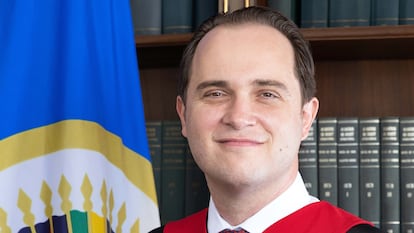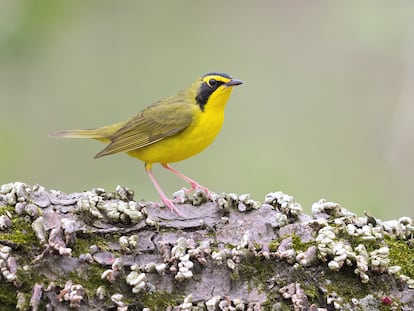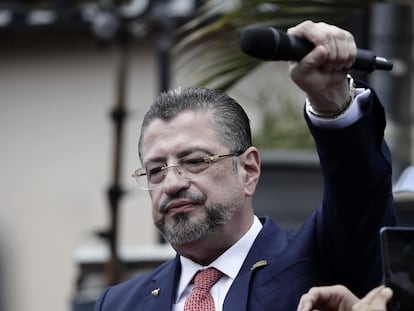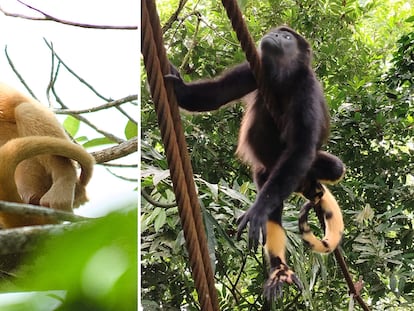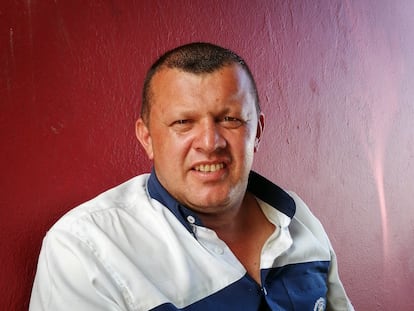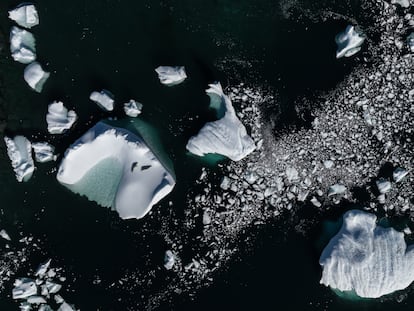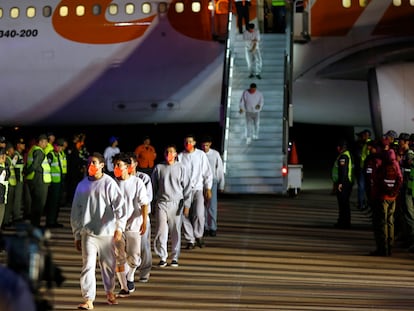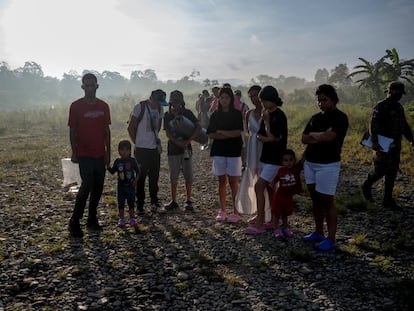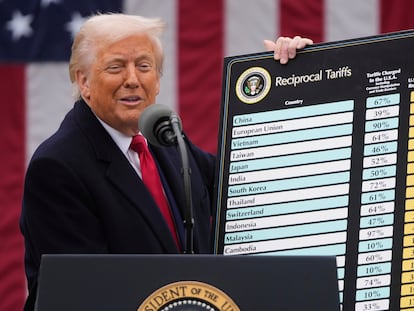Backed by President Rodrigo Chaves, the 39-year-old secured 50% of the vote in a high‑turnout election
The Venezuelan diaspora in the region generates more than $10.6 billion, according to the IOM, but 30% still live without legal status
As drug production and trafficking increase across the continent, criminal groups of all sizes are diversifying their operations and increasing their firepower. Governments, meanwhile, stumble between hard-line policies and paralysis
The Costa Rican economist and politician is launching her campaign for the United Nations secretary-general position
A recent study found that these endangered areas are home to up to 46% of the global populations of 40 species that nest in North America but spend most of the year further south
Amid a tense election campaign, the government is auctioning off frequencies at prices most broadcasters cannot afford. Those affected have raised concerns about freedom of expression
Scientists are calling for more research to understand the role of environmental factors such as exposure to chemicals in these anomalies
Randall Gamboa migrated to the United States in December in perfect health and returned to Costa Rica in September bedridden, unable to speak or eat. He died last weekend
In 2018, Chile and Argentina proposed the creation of a marine protected area on the Antarctic Peninsula to safeguard key krill habitats. Now, the countries have the opportunity to reach an agreement that will make this a reality
After surviving the encounter with a nearly four-meter-long specimen, Mauricio Hoyos continues to fight against the stigma surrounding these animals
The author of ‘The Da Vinci Code’ has just published his new novel. At his home in New Hampshire, he tells EL PAÍS that ‘The Secret of Secrets’ investigates external consciousness, the separation between body and soul. But now it’s not his eternal protagonist, Professor Langdon, who deciphers the enigmas, but Dr. Katherine Solomon, his partner
A team led by Chinese scientists found that there was a natural crossing nine million years ago, in an investigation with geopolitical implications: whoever controls potatoes dominates the world
Mexico could win its tenth Gold Cup, breaking its own record
The UN warns that Bukele may be responsible for enforced disappearances of Venezuelans imprisoned in El Salvador. And in Costa Rica, the Supreme Court has ordered the release of individuals deported by the US
Mining, ranching and logging by squatters — who are acting in collusion with the Ortega government in Managua — are expanding to the Costa Rican side of this nature reserve, which is key to maintaining the biological connectivity of the Americas
A study indicates that rising temperatures threaten 60% of the area suitable for growing the tropical fruit
The region’s migration policies continue to mobilize people, some of them returning to their countries of origin. The European Union, together with HIAS and Médecins du Monde, is focusing its reduced humanitarian support on those who remain unable to find their place in the world
The magnate’s main tool of intimidation has been tariffs, which he has leveraged to extract concessions from allied countries such as Mexico and Colombia
Though not without precedent, deporting non-citizens to third countries is now being carried out in ways that human rights groups say sidestep critical legal protections
The director of the Americas Division of the organization analyzes the first months of the Trump administration and says she still trusts in judicial independence to curb his immigration policies
New routines, such as eating alone in front of a phone, are a symptom of a growing epidemic of self-imposed isolation. Recent studies show they are causing unhappiness among more and more young people
Spaniard Carlos Mallo received the Goldman Prize this week, considered the Nobel Prize of environmentalism: ‘Tourism is the main factor damaging the islands’
The figure has been mentioned as the objective of the mass expulsion operation, but logistical and financial obstacles cast doubt on whether it can be achieved
The U.S. President has announced his tariff plan, however, he did not mention measures against Mexico or Canada
The U.S. president’s hardline policies have impacted the Darién Gap, which is now detaining both Venezuelans who have given up on the trip north and deported individuals from Asian countries
The question is no longer whether Trump can amend the Constitution to stay in power, but whether American democracy is strong enough to withstand the challenges of a leader with a base willing to question its limits
